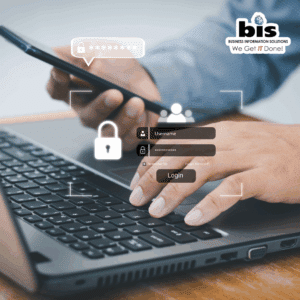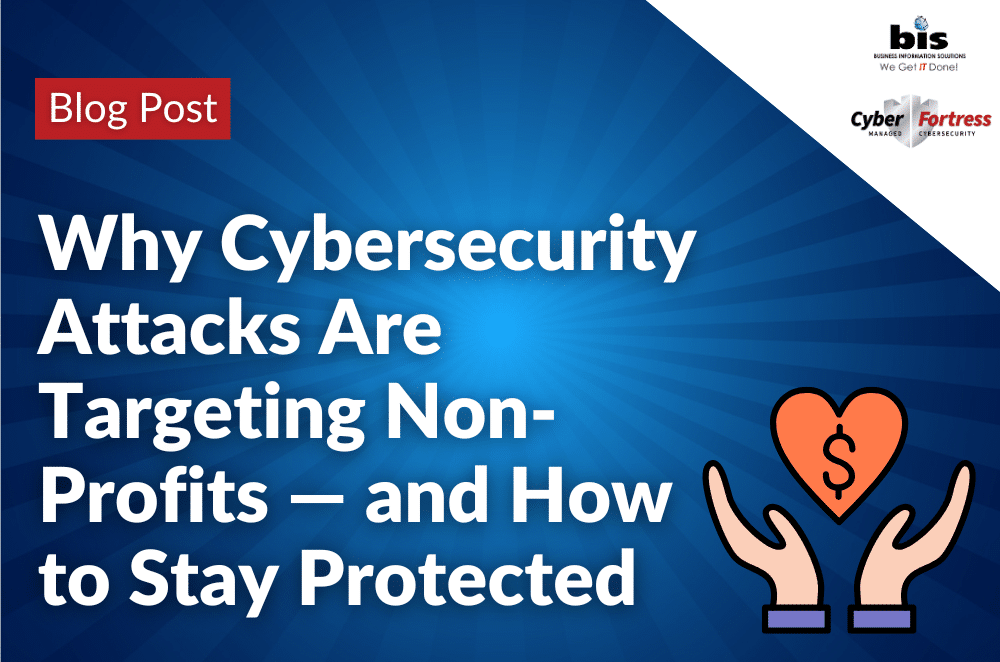Non-profits are built to serve missions, not to fight cybercrime—but in today’s digital world, that’s no longer optional. Cybersecurity attacks are increasingly targeting non-profit organizations, and unfortunately, many are underprepared.
Hackers know that most non-profits operate with limited budgets and small IT teams, which often translates into outdated systems and weak defenses. From donor databases to internal communications, a single breach can be devastating—not just financially, but reputationally.
Here’s why non-profits are a growing target, and what your organization can do to protect itself.
Why Non-Profits Are at Risk

Non-profits collect and store sensitive information, including donor records, payment details, health data (for some organizations), and even social security numbers. But compared to large corporations, many non-profits don’t have the layered protections in place to guard that data.
2. Lack of Cybersecurity Training
Most employees and volunteers at non-profits haven’t been trained to spot phishing emails, social engineering tactics, or suspicious login attempts. That makes them an easy point of entry for attackers.
3. Fewer IT Resources
Limited budgets often mean non-profits rely on a mix of outdated hardware, free software, or minimal IT support. This creates vulnerabilities that cybercriminals are more than happy to exploit.
4. Compliance Requirements Are Increasing
Even small non-profits now face pressure to comply with data privacy regulations and grant funding requirements related to security. A cyberattack can derail these obligations overnight.
Common Attacks Targeting Non-Profits
Phishing Emails: Disguised as donor messages or internal communications, these emails trick staff into clicking malicious links or revealing passwords.
Ransomware: Once inside your network, attackers can encrypt all your data and demand payment to release it.
Business Email Compromise (BEC): Hackers impersonate executives or finance staff to redirect donations or grant funds.
Website Takeovers: Non-profit websites are often exploited to distribute malware or spread disinformation.
How to Defend Your Mission
1. Conduct a Security Assessment
Know where you’re vulnerable. An IT security audit from a local provider like BIS can reveal gaps in your defenses and help prioritize fixes based on your budget.
2. Train Your Team
Even basic cybersecurity awareness training can prevent the majority of breaches. Staff and volunteers should know how to recognize phishing emails and use strong passwords.

Adding an extra layer of security to logins makes it much harder for attackers to access your systems, even if passwords are compromised.
4. Partner with a Trusted IT Provider
Managed IT services aren’t just for big businesses. A local partner like BIS can monitor your systems 24/7, provide secure backups, and help you meet compliance standards without stretching your internal team.
5. Back Up Your Data Regularly
Don’t wait until ransomware strikes. Daily backups stored in a secure, off-site location can be your safety net when disaster strikes.
Book Your Business Risk Assessment!
Need help securing your mission? BIS in Robertsdale specializes in affordable, scalable IT and cybersecurity support for non-profits across Baldwin County and the Gulf Coast. Let’s make sure your systems are as strong as your cause.
Book your discovery meeting with Phillip Long below.
ADDITIONAL RESOURCES

Phillip Long – CISSP, CEO of , along with his team of marketing and information technology experts, will walk you through an overview of what your business should be doing to protect your data and plan your digital marketing strategies.
You may reach out to us at:
Phone: 251-405-2555
Email: support@askbis.com


